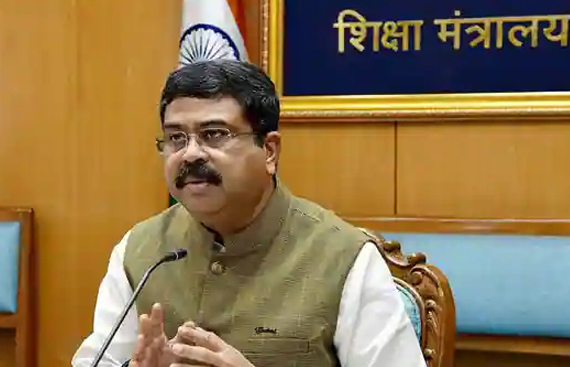Central Govt. Working to Supervise Indian Edtech Players

The central government is working on a programme to supervise the country's edtech players. The proposed policy aims to reduce monopoly and prohibit some edtech platforms from exploiting students through grandiose promises or unfair practises.
The Union Ministry of Education is in negotiations with the Ministries of Law and Electronics and Information Technology (MeitY) to build a unified strategy for the industry, which has grown dramatically in the previous two years.
Dharmendra Pradhan, India's education minister, declared on January 3 that he appreciates edtech companies and is not opposed to their expansion. The minister remarked, “but there cannot be a monopoly…you cannot exploit students.”
He said that the government's responsibility is that of a protector for children, and that his ministry has discovered that some edtech companies are abusing pupils through loan-based courses.
During an event organised by the All India Council for Technical Education (AICTE), Pradhan remarked, “we are in talks with the Ministry of Law and MeitY about how we can have a common policy on edtech platforms.”
Last month, the minister said he asked all of his ministries to publish advisories, including school education, higher education, and skill development and entrepreneurship.
In December, the Education Ministry published an advise warning students to be wary of unscrupulous tactics, citing increased reports of poor performance despite grandiose claims.
According to a government advice issued recently, “do not blindly trust the advertisements of the edtech companies. Do not sign up for any loans of which you are not aware. Do not install any mobile edtech application without verifying the authenticity.”
Pradhan stated that he does not want to restrict knowledge, but instead wants edtech companies to collaborate with the government to decrease learning loss. He stated that both indigenous and multinational edtech businesses operate in India, and that monopolies by certain will be discouraged.
Since the advent of the pandemic, India's edtech start-ups have seen a surge in demand. Demand has propelled companies like upGrad, Byju's, Vedantu, Unacademy, Simplilearn, and others to rapid expansion. Hundreds of start-ups have received investment from investors who are betting big on Indian start-ups vying for a piece of the enormous education sector in India and overseas.
There is currently no government statistics on the number of edtech companies operating in India. As of December 25, 2021, “there are 9,043 EdTech startups in India,” according to startup data intelligence firm Tracxn.
According to Pradhan, almost 12 lakh students from low-income families have received free ed-tech course tickets worth INR 253 crore. At least 4 lakh vouchers were distributed to students in Uttar Pradesh.
The e-coupon was distributed through the National Educational Alliance for Technology (NEAT) project, which brings together the AICTE, the technical education regulator, and dozens of edtech companies. According to the government, NEAT is an initiative to enable the utilisation of best-developed technology solutions in the education sector to boost youth employability on a single platform for learners' convenience.
Read More News :
Electric two-wheeler maker One Moto to invest INR 250 crore to set up manufacturing unit



.jpg)